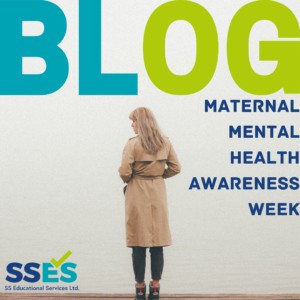Today we are acknowledging Maternal Mental Health Awareness Week, which is the 2nd to 8th May this year and organised by the Maternal Mental Health Alliance.
We wanted to write a post about this as all our standards are for the workforce for early years, children and young people. They will be caring for the children whose mothers have struggled with their mental health during, or after, their pregnancy. Sometimes carers are made fully aware of any issues relating to pre and post pregnancy, but not always. Because of the stigmatism that still surrounds mental health, not everyone is willing to share information.
If you consider your training, whether currently studying, recently qualified, or CPD, how much time is spent on prenatal and postnatal? And yet those months before and after birth will impact profoundly on the brain development of the baby. Being aware of the history can help you support the baby’s needs, and know what to look for in terms of behaviour and development.
Each year they have a theme and this year it is ‘The Power of Connection’, although each day will have a slightly different theme. More information can be found here.
From their website: Perinatal mental health refers to a woman’s mental health during pregnancy and the first years after birth.
This includes mental illness that existed before pregnancy, as well as illnesses that develop for the first time or are greatly exacerbated in the perinatal period.
Examples of perinatal mental health problems include antenatal and/or postnatal depression, anxiety, obsessive compulsive disorder, postpartum psychosis and post-traumatic stress disorder (PTSD). These illnesses can be mild, moderate or severe, requiring different kinds of care or treatment.
Key statistics about perinatal mental health in the UK:
- Around 1 in 5 women experience a perinatal mental health problem during pregnancy or within the early postnatal years.
- 70% will hide or underplay their illness.
- Suicide is the leading cause of direct maternal death within a year of having a baby.


